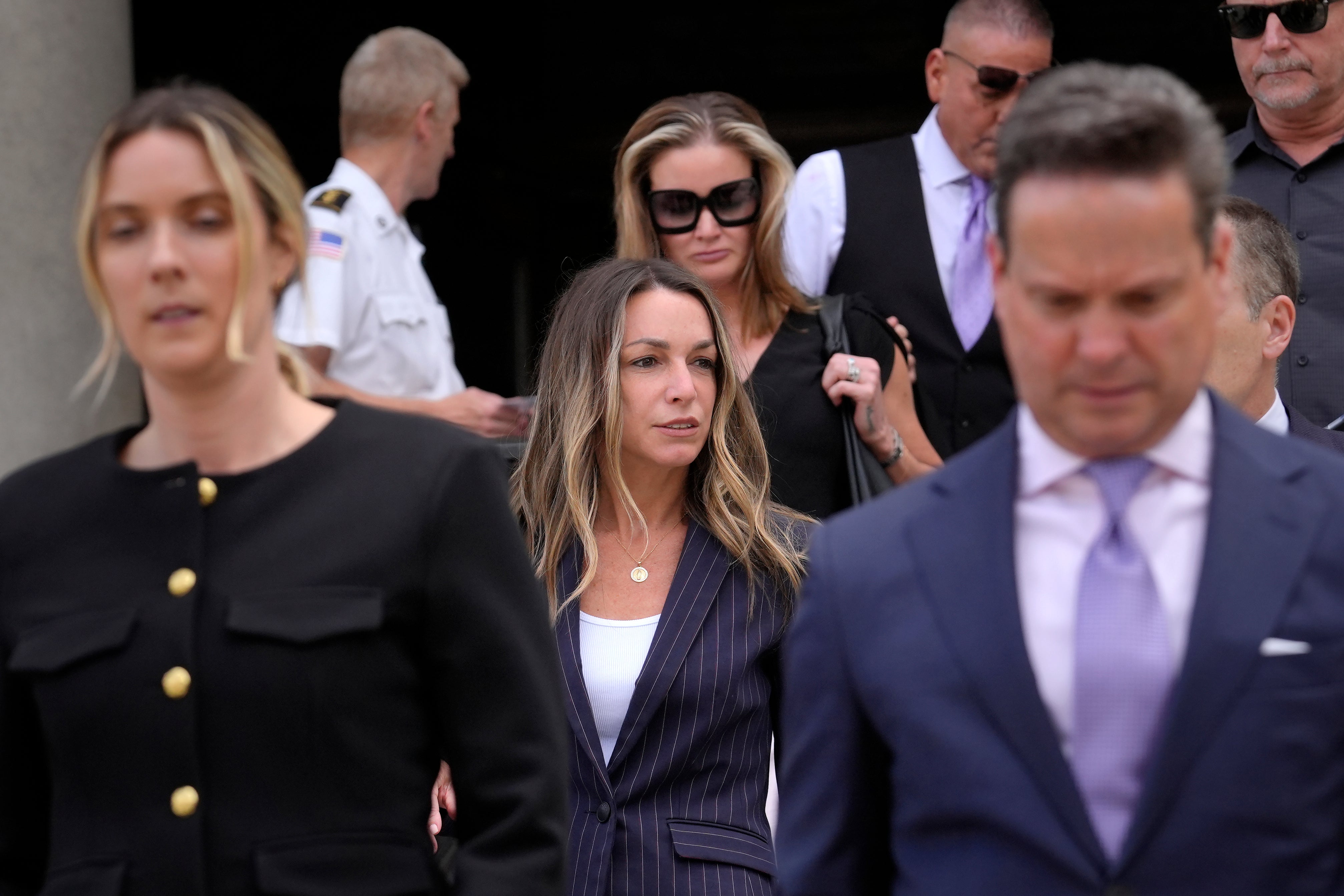Highest court in Massachusetts to hear arguments in Karen Read's bid to dismiss murder charge
The latest chapter in the Karen Read saga moves to the state’s highest court, where her attorneys are hoping to convince judges that several charges related to the death of her Boston police officer boyfriend should be dropped

The latest chapter in the Karen Read saga moves to the state's highest court, where her attorneys Wednesday are hoping to convince judges that several charges related to the death of her Boston police officer boyfriend should be dropped.
Read is accused of ramming into John O’Keefe with her SUV and leaving him to die in a snowstorm in January 2022. Read’s attorneys argue she is being framed and that other law enforcement officers are responsible for O’Keefe’s death. A judge declared a mistrial in June after finding jurors couldn’t reach an agreement. A retrial on the same charges is set to begin in January, though both sides asked Monday for it to be delayed until April. 1.
The defense is expected to reiterate arguments made in briefs to the Massachusetts Supreme Judicial Court that trying Read again on charges of second-degree murder and leaving the scene would be unconstitutional double jeopardy.
Defense attorneys said five jurors came forward after her mistrial to say that they were deadlocked only on a manslaughter count and had agreed that she wasn’t guilty on the other counts. But they hadn’t told the judge.
The defense also argues that affidavits from the jurors “reflect a clear and unambiguous decision that Ms. Read is not guilty” and support their request for a evidentiary hearing on whether the jurors found her not guilty on the two charges.
Read’s defense attorneys cited a ruling in the case of Boston Marathon bomber Dzhokhar Tsarnaev, in which a federal appeals court earlier this year ordered the judge who oversaw his trial to investigate the defense’s claims of juror bias and determine whether his death sentence should stand.
“Under the Commonwealth’s logic, no defendant claiming that the jury acquitted her but failed to announce that verdict would be entitled to further inquiry, no matter how clear and well-supported her claim,” according to the defense brief.
The defense also arguing that the judge abruptly announced the mistrial in court without first asking each juror to confirm their conclusions about each count.
“There is no indication that the court gave any consideration to alternatives, most notably inquiry regarding partial verdicts,” according to the defense brief. “And counsel was not given a full opportunity to be heard. The court never asked for counsel’s views, or even mentioned the word mistrial.”
In August, a judge ruled Read can be retried on those charges. “Where there was no verdict announced in open court here, retrial of the defendant does not violate the principle of double jeopardy,” the judge, Beverly Cannone, said in her ruling.
In its brief to the court, prosecutors wrote that there’s no basis for dismissing the charges of second-degree murder and leaving the scene of the accident.
They noted in the brief that the jury said three times that it was deadlocked before a mistrial was declared. Prosecutors said the “defendant was afforded a meaningful opportunity to be heard on any purported alternative.”
“The defendant was not acquitted of any charge because the jury did not return, announce, and affirm any open and public verdicts of acquittal,” they wrote. “That requirement is not a mere formalism, ministerial act, or empty technicality. It is a fundamental safeguard that ensures no juror’s position is mistaken, misrepresented, or coerced by other jurors.”
Prosecutors said Read, a former adjunct professor at Bentley College, and O’Keefe, a 16-year member of the Boston police, had been drinking heavily before she dropped him off at a party at the home of Brian Albert, a fellow Boston officer. They said she hit him with her SUV before driving away. An autopsy found O’Keefe had died of hypothermia and blunt force trauma.
The defense portrayed Read as the victim, saying O’Keefe was actually killed inside Albert’s home and then dragged outside. They argued that investigators focused on Read because she was a “convenient outsider” who saved them from having to consider law enforcement officers as suspects.
Bookmark popover
Removed from bookmarks